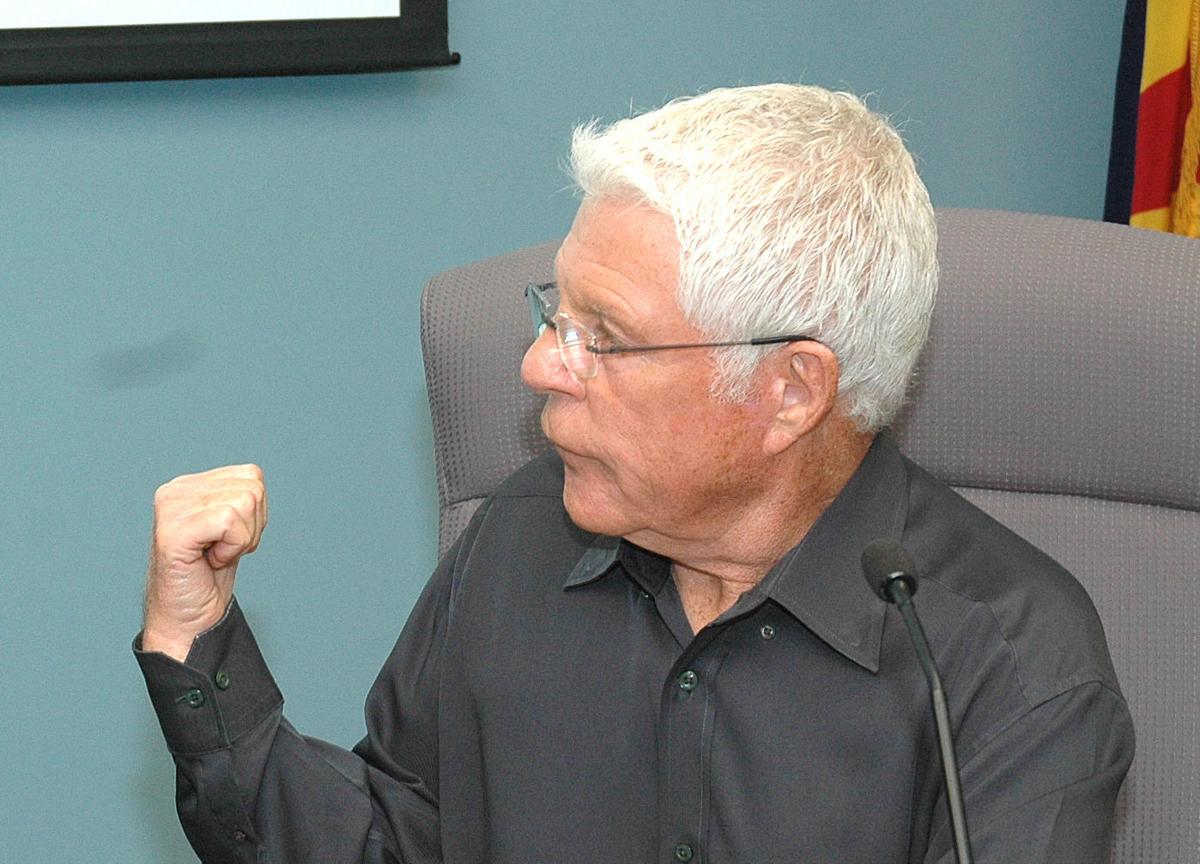PHOENIX — A plan by business leaders to ask voters for a 1.5-cent sales tax increase for education on the 2020 ballot could set the stage for an expensive battle with Gov. Doug Ducey and his Koch brothers allies.
The plan’s newly disclosed specifics include $660 million to extend the 0.6-cent sales tax that voters first approved in 2000 to fund education. That levy will self-destruct in 2021 unless specifically reauthorized.
Ducey has already said he supports making that tax permanent.
But this plan also includes $340 million for a 10 percent increase in teacher pay. That compares with the 1.06 percent pay raise lawmakers approved for teachers this year, with a promise of an identical amount next year.
There’s also $300 million to fund the formula, ignored for years by the governor and lawmakers, that is supposed to pay for new school construction and repairs.
An additional $240 million would restore state funding, eliminated during the recession, for full-day kindergarten.
And there would be $190 million to help restore some university funding cuts.
Ducey, who faces re-election next year, remains opposed to anything more than the simple extension of the 0.6-cent tax.
“He doesn’t support raising taxes,” his press aide Daniel Scarpinato said Wednesday.
Instead, the Republican governor has told state agencies’ chiefs to find ways to save money in their budgets with the idea of redirecting dollars to K-12 education.
Ducey has a track record of fighting against higher taxes for education. As state treasurer, he led the successful 2012 fight against an initiative pushed by parents and educators to make permanent a temporary one-cent sales tax increase voters had approved two years earlier.
Potentially more significant, he has shown an ability to tap financier brothers Charles and David Koch to pay for such efforts. More than half the nearly $1.8 million Ducey spent to kill the 2012 ballot measure came from Americans for Responsible Leadership, a group that legal filings from other states revealed got its money from a Koch-financed organization.
Two years later, Ducey got elected with the help of Koch-based organizations, which put more than $750,000 into ads targeting Democratic candidate Fred DuVal and spent an additional $650,000 promoting Ducey. Since that time, Ducey has regularly attended retreats sponsored by Koch groups promoting their vision of free enterprise.
Phil Francis, former CEO of PetSmart and one of the leaders of the Az Leaders for Education coalition proposing the sales-tax increase, said it isn’t about picking a fight with the governor, whom he said he supports.
But he said financial data show that much more money is needed for education than the state is spending.
The Joint Legislative Budget Committee showed per-student state aid in the 2007-2008 school year was $4,959. Adjusted for inflation, Francis said, the figure dropped to $3,782 in the 2014-2015 school year. It’s now at $4,157.
He said simply coming up with new ways to divide the money is not the answer. “We don’t need another vision for education,” Francis said. “We need to act.”
Reginald Ballantyne, former president of the state Board of Education, is particularly focused on children getting more than 2.5 hours a day in kindergarten, saying it’s “no longer about cookies, coloring and naps.”
“By the end of kindergarten, students (should) understand the organization and basic features of print, blend sound to read written words with fluency and accuracy, and use phonics to write words and express thoughts and ideas in writing,” he said. Ballantyne said the success of students in higher grades is directly linked to those early years.
Ballantyne is a former senior corporate officer of Vanguard Health System. Others in the coalition include Mike Brewer, president of Brewer Companies and Benjamin Franklin Plumbing, and John Whiteman, former CEO of Empire Machinery and now president of the Whiteman Foundation.
Ducey and the business leaders do agree on one thing: Any question about taxes for education should not go to voters next year, but rather in 2020.
Scarpinato said the governor, who only wants the 0.6-cent extension, believes “it’s going to take a broad coalition, and a lot of voter education” just to get even that approved.
For the business interests, it’s more complex.
Teachers and allies have gathered enough signatures to put a measure on the 2018 ballot to give the voters final say over a plan approved this year by the Legislature to expand who can get vouchers of state tax dollars to send their children to private and parochial schools.
“That’s going to take attention and money and energy,” Francis said.
He also suggested that statewide races, including Ducey’s own reelection campaign, only add to the “noise” that an education measure would have to overcome in 2018.
Francis said it was a conscious decision to spell out how much of the proposed new tax would go to specific programs rather than simply dump new dollars into the K-12 system. He said these reflect the priorities Ducey has laid out, even if the governor won’t come up with new cash to fund them.
Ideally, Francis said, the Republican-controlled Legislature will vote to put the issue on the 2020 ballot. He said that allows lawmakers to keep their vows of never voting for higher taxes, as the final decision would be made by the voters.
But Francis said if lawmakers balk, the option remains to gather signatures to put the issue on the ballot.





